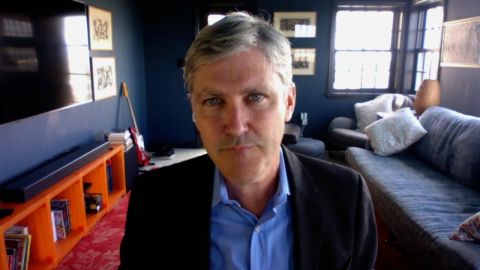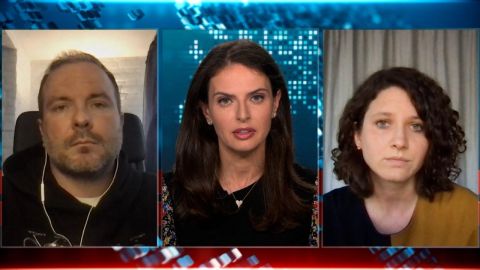Read Transcript EXPAND
CAROL ANDERSON, AUTHOR, “THE SECOND: RACE AND GUNS IN A FATALLY UNEQUAL AMERICA”: Thank you so much. What we saw with Tulsa was a black community that was prosperous, that had done everything that it was supposed to do, you know, that standard American narrative. You work hard. You go to school. You earn. You achieve. You accomplish. And you too can have the American dream. And they did that in Tulsa. And they did that against all odds, because this is in the era of Jim Crow. And these are folks who are just a few decades out from slavery in the United States. They did it. And what happened was, there was a triggering event, as it were, where a young black man was accused of attempted rape of a white woman. He is thrown into jail. There’s a white mob that is forming outside that jail. African-Americans from the prosperous Greenwood community, they come to prevent a lynching. They are armed. That sent just a wave of anger through that white mob, that black men had the audacity to believe that they had the right to self-defense, that they had the right to demand justice, that they had the right to intervene in a lynching. The next thing you know, the mob is deputized, and they just eviscerated, just waylaid that community, 35 to 40 blocks just destroyed, planes dropping kerosene bombs on that community. The reason why we don’t know this basically gets to the battles that we’re having right now in American society about American history. When you have an American history that cannot acknowledge racism, that cannot acknowledge the devastation that has happened in the black community, then you get a narrative that is what they call hagiographic. It is about the greatest nation on Earth founded by white men who worked really hard, and they did everything they could to bring democracy to America. And then that makes the nation that we live in right now unintelligible to our eyes, because we have really bad history that makes what we see very difficult to discern. And so we come up with, oh, we must be looking at a culture of poverty kinds of rationales, instead of what we’re looking at is the systematic devastation of the black community and the stripping of their wealth
About This Episode EXPAND
100 years ago, on 31 May and 1 June, an estimated 300 Black people were killed in a rampage by a white mob in Tulsa, destroying a wealthy neighborhood known as America’s Black Wall Street.
LEARN MORE



